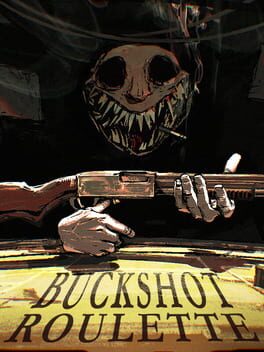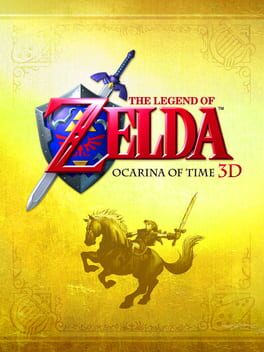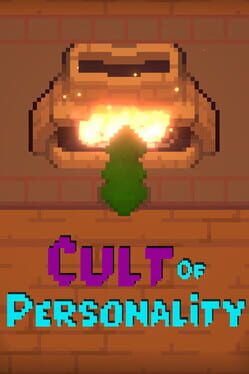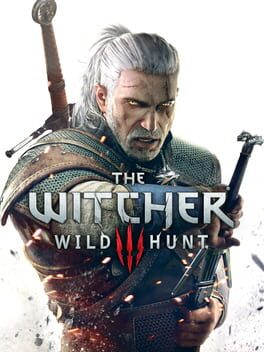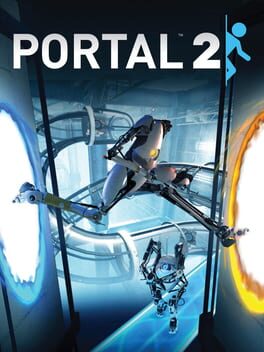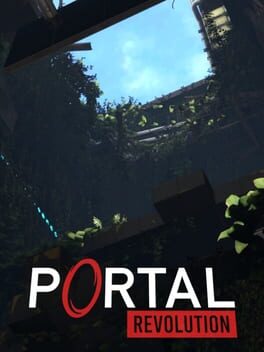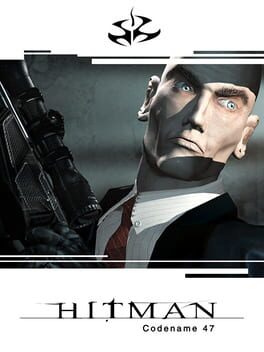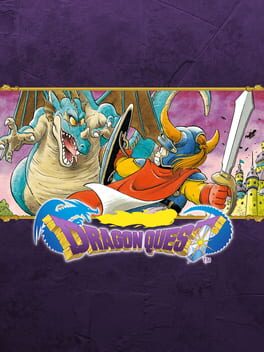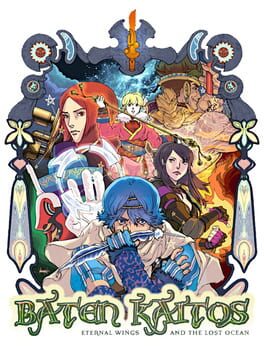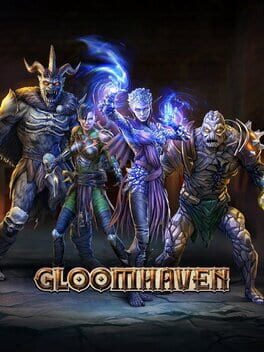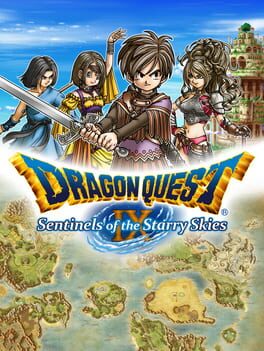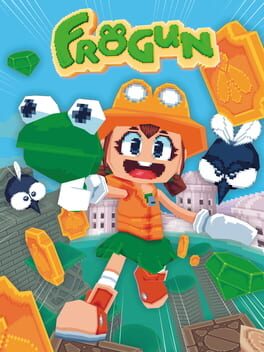Gana
2023
At first glance this is an Among Us clone, but while it's inspiration is clear, I definitely think this game has its own identity. I think the main point of separation is that this game does not have a separation between the talking phase and the roaming phase. Talking is always open via proximity chat, killing is possible anywhere, and so on. The other major point is that any side can kill at any time. The defectors (impostors) are as capable of doing any of the tasks the cultists (crewmates) are doing, meaning it's impossible to truly verify someone as innocent. The only way to determine if someone is a defector is if, in your judgement, it seems they are acting against the cult's interest, and/or if the dead players (defectors included, mind you) seem to be signaling to them via lights and possessions, which are quite difficult to read given that you do not know the allegiance of any given ghost.
This goes into some of the problems I have with this game, the main one being that I think in the game's current state, it's not really a Social Deduction game. In this game, you're rather unlikely to have large discussions with the group about who the killer is, since the game is designed for everyone to be busy doing their tasks, and there's no dedicated talking phase unless the players decide to do one themselves (all while the Defector resurrection timer ticks down.) It's much more likely that you will simply figure out who the defectors are when they start attacking you. Defectors have their own private communication channels, but the only use of this I ever found was to coordinate kills/ghost moves, not to set up any elaborate lies, alibis, or other ruses.
The other point I'd make is that I dislike this game's combat. It's top-down WASD movement with left click for a light attack and right click for a big one. The controls feel rather cumbersome (especially if you're trying to use push-to-talk at the same time). Defectors have no combat advantage other than potentially getting the first strike, and even then, there's nothing really stopping a particularly paranoid cultist from doing that instead. The combat also has friendly fire, meaning any attempts at ganging up on someone, using possessed bats to assist an ally, etc. can easily backfire if your ally just walks to close to your target to get a swing of their own in. Worst of all, the combat is prone to stunlocking via the strong attack, making it feel like a more unsatisfying version of an instakill. All's this to say that the process of killing another player in this game feels less like a Social Deduction game's kill button and more like Minecraft Hunger Games combat.
I think the game has potential, and definitely hits the "fun with friends for a couple hours" spot, but it does not hold up to Among Us for me. Still, this is getting updates, so it's worth keeping an eye on.
This goes into some of the problems I have with this game, the main one being that I think in the game's current state, it's not really a Social Deduction game. In this game, you're rather unlikely to have large discussions with the group about who the killer is, since the game is designed for everyone to be busy doing their tasks, and there's no dedicated talking phase unless the players decide to do one themselves (all while the Defector resurrection timer ticks down.) It's much more likely that you will simply figure out who the defectors are when they start attacking you. Defectors have their own private communication channels, but the only use of this I ever found was to coordinate kills/ghost moves, not to set up any elaborate lies, alibis, or other ruses.
The other point I'd make is that I dislike this game's combat. It's top-down WASD movement with left click for a light attack and right click for a big one. The controls feel rather cumbersome (especially if you're trying to use push-to-talk at the same time). Defectors have no combat advantage other than potentially getting the first strike, and even then, there's nothing really stopping a particularly paranoid cultist from doing that instead. The combat also has friendly fire, meaning any attempts at ganging up on someone, using possessed bats to assist an ally, etc. can easily backfire if your ally just walks to close to your target to get a swing of their own in. Worst of all, the combat is prone to stunlocking via the strong attack, making it feel like a more unsatisfying version of an instakill. All's this to say that the process of killing another player in this game feels less like a Social Deduction game's kill button and more like Minecraft Hunger Games combat.
I think the game has potential, and definitely hits the "fun with friends for a couple hours" spot, but it does not hold up to Among Us for me. Still, this is getting updates, so it's worth keeping an eye on.
2011
An extremely common subgenre of the puzzle genre is what I'm going to call the one-mechanic genre, where all the puzzles in the game build on one mechanic from start to finish, with the end goal almost always being the same, usually getting some object from Point A to Point B. 90% of those make the same mistake for me: the mechanic gets old. There are only so many ways you can push a box, draw a line, etc. without it getting dull. I'd say Portal 2 is the best example of this type of puzzle game, and it does it effortlessly. I don't think this game has a bad puzzle, or a boring stretch, at any point in its relatively long playtime. This is helped by the antics of Wheatly and GLaDOS but, obviously, the game design itself takes most of the credit. I think the main thing is that Portal 2 adds new and interesting mechanics regularly, and always combining them with old mechanics in interesting ways. This feels like an obvious statement, of course you want to add new types of puzzles as the game goes on, but it's so hard to do this well and Portal 2, again, does it in a way that feels effortless.
I wish Valve still made games regularly, because I think their work is genuinely masterful when they do.
I wish Valve still made games regularly, because I think their work is genuinely masterful when they do.
2007
2024
Extremely good fangame. If you're a Portal fan I highly recommend checking it out. Generally good puzzles, a bold attempt at a plot, and it does a lot of things that I also liked in Portal 2.
Disclaimer: I got about halfway into this game before I decided I got my fill. It's possible that lategame improves on things I mention, though from reading other reviews, I'm doubtful.
After some hours I did get my fill, and decided to stop playing prematurely. I think something that happens with a lot of Portal 2 fan-campaigns/mods is that they get stale in their puzzles after a while. Portal 1 and 2 both introduce mechanics one at a time and then start combining them together, such that over the course of an entire game you never really go too long without getting some new stimulus to process. Most fan content obviously can't do that. They use the tools that are provided in the box, and are generally designed with the knowledge that a player has already finished the main game and knows how everything works.
Portal Revolution advertises that the puzzle difficulty picks up right where Portal 2 left off, with some new mechanics added, and that playtime ranges from 5 - 7 hours. However, while the difficulty picks up where Portal 2 left off, I felt as if it also plateau'd there. The time between new mechanics made me feel as if things were getting long in the tooth before I'd even reached them. Remember, Portal 1 is 3-5 hours, potentially shorter if you already know what you're doing. Making a fangame longer than Portal 1 is truly no small feat, but I do think it points to a lack of brevity in the team, something that can often happen when a team is too passionate about its own work to have restraint.
I don't want it to sound negative, honestly the game is still fun to play. It's just that it's easier to make criticisms when the only positive things I have to say are that I enjoyed the puzzles.
Disclaimer: I got about halfway into this game before I decided I got my fill. It's possible that lategame improves on things I mention, though from reading other reviews, I'm doubtful.
After some hours I did get my fill, and decided to stop playing prematurely. I think something that happens with a lot of Portal 2 fan-campaigns/mods is that they get stale in their puzzles after a while. Portal 1 and 2 both introduce mechanics one at a time and then start combining them together, such that over the course of an entire game you never really go too long without getting some new stimulus to process. Most fan content obviously can't do that. They use the tools that are provided in the box, and are generally designed with the knowledge that a player has already finished the main game and knows how everything works.
Portal Revolution advertises that the puzzle difficulty picks up right where Portal 2 left off, with some new mechanics added, and that playtime ranges from 5 - 7 hours. However, while the difficulty picks up where Portal 2 left off, I felt as if it also plateau'd there. The time between new mechanics made me feel as if things were getting long in the tooth before I'd even reached them. Remember, Portal 1 is 3-5 hours, potentially shorter if you already know what you're doing. Making a fangame longer than Portal 1 is truly no small feat, but I do think it points to a lack of brevity in the team, something that can often happen when a team is too passionate about its own work to have restraint.
I don't want it to sound negative, honestly the game is still fun to play. It's just that it's easier to make criticisms when the only positive things I have to say are that I enjoyed the puzzles.
2000
2004
The thing that stands out to me the most about this game was it's willingness to do new things. The deckbuilding, the card based battle system, the field magnus, the fact that cards age into other cards, SP combos, the list of things this game was just willing to throw at the wall never really stops. I do think it gets a little long in the tooth towards the end, but overall this game just has a really earnest feel to it that I can't help but respect a ton.
I do wish the remastered version had left the english dub in as an option, because I do have to say that, while the QoL features added (no encounters in particular) are nice, nothing beats the original's hilariously bad English voice acting.
I do wish the remastered version had left the english dub in as an option, because I do have to say that, while the QoL features added (no encounters in particular) are nice, nothing beats the original's hilariously bad English voice acting.
2019
Gloomhaven is my favorite board game, period. With that in mind, I'm notably biased in multiple directions.
Obviously, I think any form of playing Gloomhaven is going to be a good time. For instance, if you have a BG3 group or some other group of friends that wants to meet regularly to play a game, Gloomhaven is a great choice. I think the character progression mechanics are really fun to engage with, there's a shocking amount of content, unlocking new things is satisfying, etc.
The other part of my bias is that, frankly, I am always going to prefer the board game. Nothing in this beats the physical aspect for me. Personally unboxing new characters and pulling out their figurine for the first time, putting stickers on the map, opening envelopes, all while sitting at a table with your friends, that can't really be beat by a digital version in my eyes. The digital version is significantly faster both in play and in setup, and that's the only positive I can give it over the original.
Still, I'd recommend this game to anyone who enjoys turn-based tactical RPGs, board-game fan or not.
Obviously, I think any form of playing Gloomhaven is going to be a good time. For instance, if you have a BG3 group or some other group of friends that wants to meet regularly to play a game, Gloomhaven is a great choice. I think the character progression mechanics are really fun to engage with, there's a shocking amount of content, unlocking new things is satisfying, etc.
The other part of my bias is that, frankly, I am always going to prefer the board game. Nothing in this beats the physical aspect for me. Personally unboxing new characters and pulling out their figurine for the first time, putting stickers on the map, opening envelopes, all while sitting at a table with your friends, that can't really be beat by a digital version in my eyes. The digital version is significantly faster both in play and in setup, and that's the only positive I can give it over the original.
Still, I'd recommend this game to anyone who enjoys turn-based tactical RPGs, board-game fan or not.
2020
Incredible video game. I don't think there's a whole lot to say that hasn't been said, but this is one of the few cases in memory where I genuinely have felt like the GotY winner deserved it. Every session of this game feels like getting out of the coolest DND game ever.
The lategame is buggy, I think the romance stuff is hamfisted, but all of that is basically irrelevant to me because of how enjoyable this game is from start to finish in spite of that.
The lategame is buggy, I think the romance stuff is hamfisted, but all of that is basically irrelevant to me because of how enjoyable this game is from start to finish in spite of that.
Really cool game. Every time I start a Dragon Quest game I always find myself surprised by how good they are. This game in particular has a ton of customization in terms of your party. You just create 4 custom characters and can make them into whatever job you want. For example, I got through a majority of this game without even having healing spells because I was able to build a party that could handle that. Spending several hours crafting gear admittedly helps with that, but still. Speaking of the crafting, it was a pretty major part of my playthrough. I got super into it, tbh. Created a dedicated spreadsheet to tracking things that I want/need that could calculate the number of each ingredient that I need. That's not to say that doing that level of crafting, or any crafting at all, is required to enjoy the game, but I thought it was really satisfying.
This game also got really creative with multiplayer. In a way, I think they were experimenting with some MMO stuff in this game before they made X. I unfortunately played this years after the online was shut down, but traces of the game's roguelike-y dungeon generation content still remain and seem pretty integral to post-game. Similar to an MMO, 100%ing this game also seems grindy as hell. I hear some people say that a majority of this game's content is in the post-game, so I definitely intend to check that out.
This game also got really creative with multiplayer. In a way, I think they were experimenting with some MMO stuff in this game before they made X. I unfortunately played this years after the online was shut down, but traces of the game's roguelike-y dungeon generation content still remain and seem pretty integral to post-game. Similar to an MMO, 100%ing this game also seems grindy as hell. I hear some people say that a majority of this game's content is in the post-game, so I definitely intend to check that out.
2022
2007
